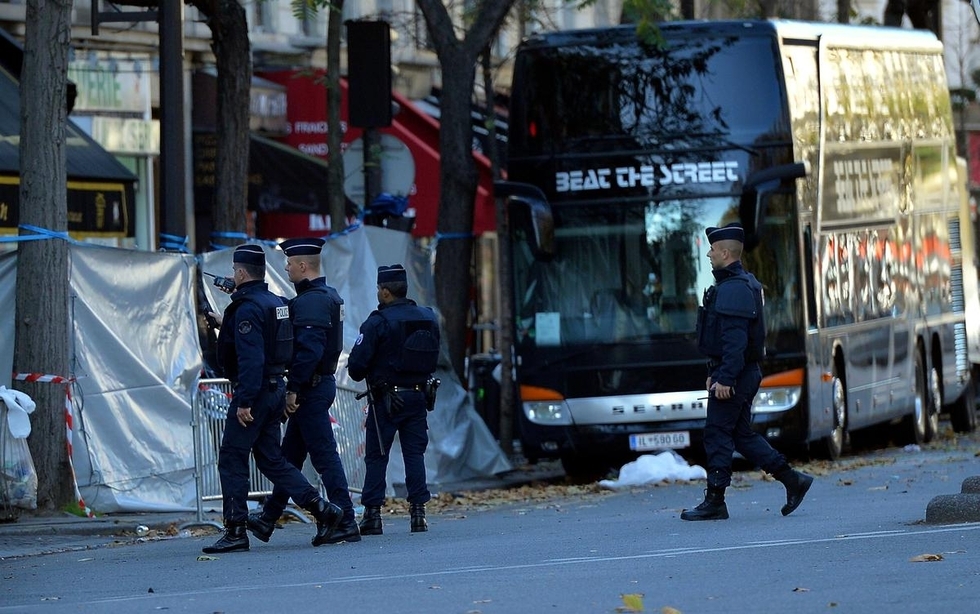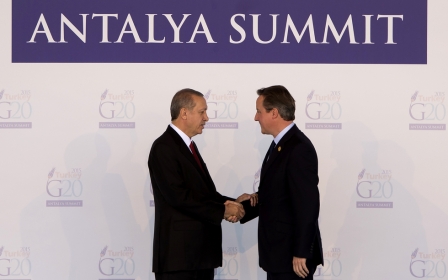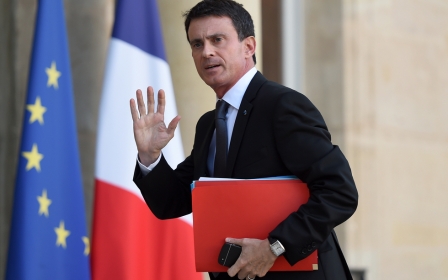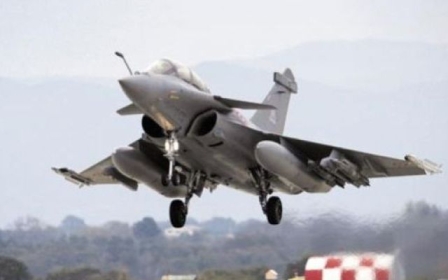Fresh arrests in France as French planes strike IS targets in Syria

French police staged 128 raids in the early hours of Tuesday, Interior Minister Bernard Cazeneuve said, as authorities stepped up their investigation into the country's worst-ever terror attacks.
Authorities had made 23 arrests and seized 31 weapons including a rocket launcher in a broad sweep of raids across the country the previous day.
The arrests came while French warplanes carried out fresh raids overnight against the Islamic State stronghold of Raqa in northern Syria, destroying a command centre and training centre, the defence ministry said on Tuesday.
"For the second time in 24 hours the French military conducted an air raid against Daesh in Raqa in Syria," it said in a statement, using another name for the jihadist group.
President Francois Hollande has vowed to hit back at IS "without mercy" after Friday's attacks in Paris, the bloodiest on its territory.
Ten Rafale and Mirage 2000 fighters carried out the raid at 0030 GMT, dropping 16 bombs, the defence ministry said.
"Both targets were hit and destroyed simultaneously," it said.
"Conducted in coordination with US forces, the raid was aimed at sites identified during reconnaissance missions previously carried out by France."
France has carried out air raids against IS in Syria since September but stepped up its raids after Friday's attacks, with 10 warplanes dropping 20 bombs on IS targets in Raqa on Sunday.
The United States and France have also decided to increase their exchange of intelligence on potential targets.
France is set to further intensify its operations against the jihadists in Syria through the information acquired and upcoming deployment of the aircraft carrier Charles de Gaulle, which will triple its capacity to strike.
Security services under harsh spotlight
France's security services are once again facing a harsh spotlight after failing to prevent the brutal attacks in Paris.
There is particular concern over the failure to intercept 28-year-old Frenchman Samy Amimour, one of the suicide bombers in the massacre at the Bataclan concert hall.
A case was opened against him in France in 2012 after an abortive attempt to go to Yemen, but he was still able to travel to Syria a year later, triggering an international warrant for his arrest.
That did not stop him sneaking back into France and taking part in Friday's bloody attacks in the capital.
"We have a problem with controlling (Europe's) Schengen borders -- a big one," said Alain Chouet, a former security chief at France's DGSE external intelligence service.
"(Amimour's) arrival should have triggered a red flag. But these guys understand very well the techniques for entering and exiting the Schengen zone. They've practised it a lot."
The intelligence services are also taking flak over one of the gunman who blew himself up at the Bataclan concert hall, Omar Ismail Mostefai.
He had been on the radar since 2010 and was subject to an "S-file" as a known "extremist".
Turkey says it alerted France that he was a potential threat on two occasions -- in December and January -- after he travelled to the country in 2013, likely on his way to Syria.
But Turkey "never got a response from France", a senior official in Ankara told AFP.
Belgium represents another major problem for European security, with several of the attackers known to local police but little done to track their movements.
"You understand that if the Belgians don't warn us, we can't do anything," a senior French police source said Monday.
Despite the criticism, experts say the scale of the challenge makes it impossible to keep track of everything.
"Fingers will be pointed at the French intelligence services but given the sheer number of individuals they have to monitor, they are finding it overwhelming, and it was always likely that some would slip through the net," said Kit Nicholl, France security analyst for IHS Country Risk in London.
New MEE newsletter: Jerusalem Dispatch
Sign up to get the latest insights and analysis on Israel-Palestine, alongside Turkey Unpacked and other MEE newsletters
Middle East Eye delivers independent and unrivalled coverage and analysis of the Middle East, North Africa and beyond. To learn more about republishing this content and the associated fees, please fill out this form. More about MEE can be found here.




